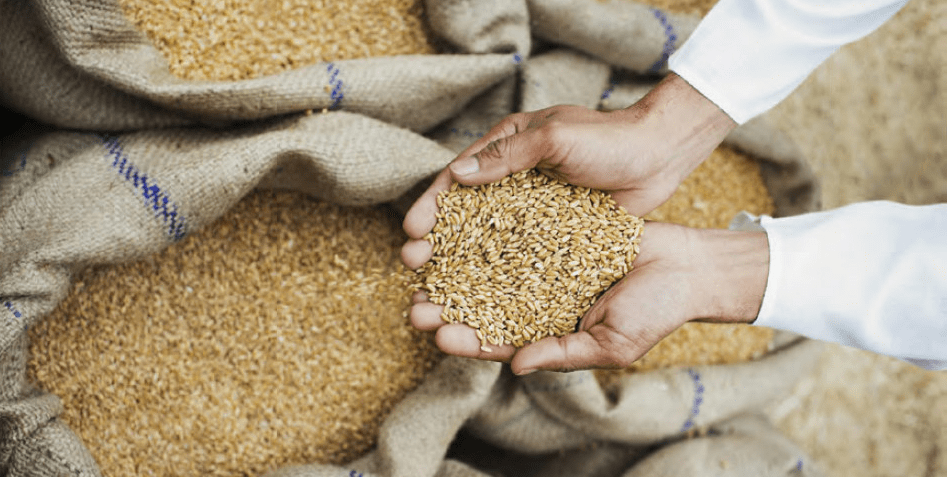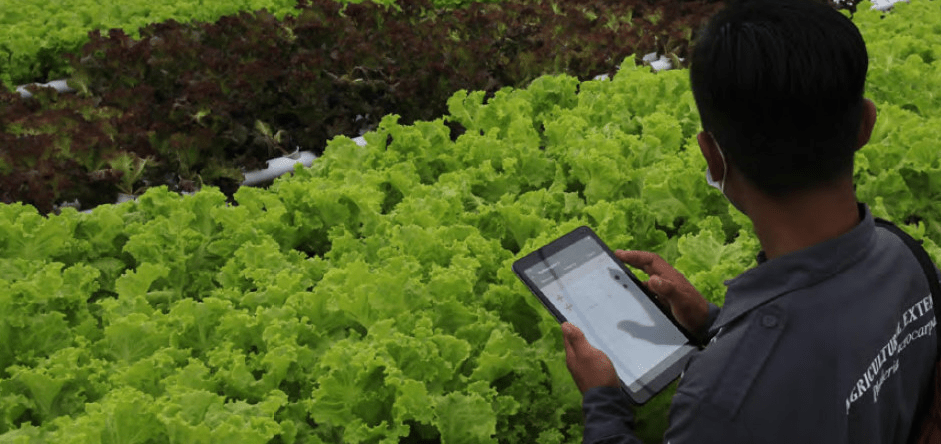Food security and the disruptive power of regenerative agriculture

The traditional approach to increasing yields in agriculture relies on seeking incremental gains via refining existing processes and making more efficient use of capital; for instance, by way of improving fertilizers and pest control, or using bigger and better machinery.
Key takeaways
- Regenerative agriculture offers the potential to radically disrupt existing farming practices
- The approach includes a range of techniques, many of which leverage emerging technologies, to improve soil and livestock health
- Agriculture provides an archetypal example of how disruption is moving beyond the tech sector
Yet such approaches are not only limited – in terms of delivering ever smaller marginal gains – but may also be having medium- to long-term deleterious effects on the soil quality, biodiversity, the water cycle, animal health, and, eventually, on yields themselves. Indeed, ensuring future food security requires looking towards different techniques as, on the one hand, booming demand for meat from growing middle classes in emerging markets is likely set to continue unabated; and, on the supply side, capacity issues and the implications of existing practices for biodiversity mean that a change of approach is sorely needed.
An alternative approach that is gaining an increasing amount of attention for its potential to radically disrupt agriculture and food production – and ensure the sustainability and security of food supplies – is the range of techniques that fall under the umbrella of “regenerative agriculture”. If sustainability is about avoiding deterioration, regenerative practices go one step further; they improve the inheritance of future generations. For farmers, that inheritance is the productive capacity of the land or, more specifically, the health of the soil. Regenerative agriculture is primarily concerned with improving soil health by weaning the farm off the use of chemicals and tillage because these cause collateral damage to the soil’s microorganisms that are allied in supporting healthy plant growth. After around seven years of regenerative practices, soil health is so improved that yields can match those of traditional farms, but the farm’s profits are higher as input costs are lower.
“The potential of regenerative agriculture… to change the shape of farming and food production provides an archetypal example of how disruption is now changing industries beyond what is traditionally considered “tech”.
To de-risk the transition to regenerative farming, solutions like precision & digital agriculture, biologicals and voluntary carbon markets can play a helpful role.
Technology changing the landscape
The regenerative approach encompasses a variety of techniques to improve soil health, including the use of antibiotic-free livestock that cycle nutrients back into the soil without relying on chemical fertilizers. Healthier soil produces more nutrient-rich food, retains more water, and protects against the extreme weather that is becoming more common the climate changes. And, as well as disrupting the nature of large-scale agriculture itself, the regenerative approach also has the potential to reduce a range of negative externalities caused by existing farming practices – such as, for example, the emission of greenhouse gases and the runoff of harmful chemicals into rivers, lakes, and seas. Indeed, in this respect the “sustainable” label is accurate, and the growth of regenerative agriculture fits well with the trend towards improving the resilience, environmental impact, and sustainability of economic processes across the board.

Looking specifically at the tech-driven aspects of the regenerative approach, there are several areas that offer the greatest promise for disrupting existing methods of agriculture. For instance, pioneering work in the biotech sector is facilitating nitrogen fixation for a range of different crops, greatly reducing the volume of added fertilizer needed to maintain and grow current yields. Alongside simplifying existing processes and potentially reducing costs, lowering the volume of chemical fertilizers used in agriculture will reduce runoff pollution and the associated algae blooms that often threaten marine life.
Other seed solutions coming from the biotech sector offer the prospect of genetically modified crops, such as wheat and soybeans, with greatly improved drought resistance. Not only does such technology offer greater yields in water-limited conditions, but also the potential for improved water management in agriculture more broadly. Likewise, engendering disease and pest resistance through genetic engineering could greatly reduce the use of chemicals throughout a crop’s lifecycle, while the development of these chemicals themselves is becoming more sophisticated to avoid the use of “collateral damage” type products that can inflict harm beyond their intended targets. Of course, such approaches are not without controversy and, while there is now an imperative to act and these new technologies are certainly here to stay, constructive debates around the most appropriate use of such technologies will continue and should be welcomed.

With respect to livestock, the philosophy is similar: to seek solutions that reduce the need for later interventions that may come with potentially harmful side effects. One example of this is the development of breeds – perhaps through leveraging natural selection – that are resistant to certain diseases, thus greatly reducing the costs and externalities involved in treating these diseases during the animal’s life.
Disruptive potential
The potential of regenerative agriculture, and related developments in the sector, to change the shape of farming and food production provides an archetypal example of how disruption is now changing industries beyond what is traditionally considered “tech”. Indeed, it is clear that this disruption not only presents risks for existing, established players, but also opportunities for both up-and-coming corporates and forward-thinking investors. While the science and technology behind many of the techniques discussed is now coming of age, economic imperatives are also driving fundamental change in the agricultural sector. Indeed, it seems the time is certainly ripe for a radical disruption of existing agricultural practices.







